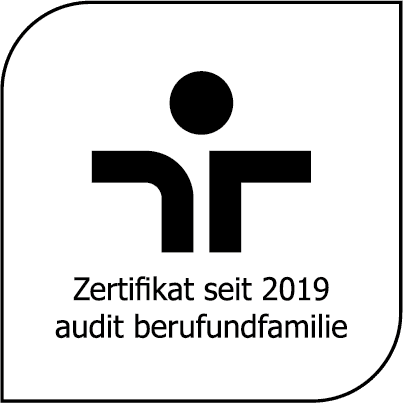Test instruments sorted
Contact person for the Open Test Archive
Gülay Karadere (Dipl.-Psych.)
Research Associate
guek@leibniz-psychology.org
JAS
Job-Angst-Skala
Short abstract
JAS aims to differentiate between different qualities of work-related anxiety. It contains 70 items, which are aggregated to 14 subscales, which in turn can be combined to five superordinate dimensions and across all dimensions to form a total value: (1) Stimulus-related fears and avoidance behaviour (k = 17), (2) Social fears and impairment cognitions (k = 19), (3) Health- and body-related fears (k = 10), (4) Insufficiency experience (k = 14) and (5) Workplace-related generalised worries (k = 10). Reliability: Cronbach's alpha was alpha = .98 (total scale), alpha = .87-.95 (superordinate scale). Comparably high values were found in the two partial samples of orthopaedic and psychosomatic patients. Retestreliability after one week was rtt =.58-.93. Validity: Several factor analyses were calculated to prove the desired scale structure. JAS mean value and STAI trait scale correlated between r = .59-.69. The criterion-related validity showed significant correlations of JAS with the previous duration of incapacity for work. Orthopaedic patients also showed lower values on almost all subscales than psychosomatic patients. Patients who had been diagnosed with workplace phobia based on a clinical interview showed higher JAS values than patients with work-related anxieties but without a diagnosis of workplace phobia.
Leibniz Institute for Psychology (ZPID). (2019). Open Test Archive: JAS. Job-Angst-Skala. Available at: https://www.testarchiv.eu/en/test/9006035
Citation
Linden, M., Muschalla, B. & Olbrich, D. (2012). JAS. Job-Angst-Skala [Verfahrensdokumentation, Kurzmanual und Fragebogen]. In Leibniz-Institut für Psychologie (ZPID) (Hrsg.), Open Test Archive. Trier: ZPID.
https://doi.org/10.23668/psycharchives.4661
Short information
Short Name JAS
English Name Job Anxiety Scale
Authors Linden, M., Muschalla, B., Olbrich, D.
Published in Test archive 2012
Copyright/Licence Copyright Autoren; CC-BY-SA 4.0
Language versions deu
Item number 70 items
Subscales (1) Stimulus-related anxieties and avoidance behaviors (anticipatory anxiety, phobic avoidance, conditioned anxiety), (2) Social anxieties and impairment cognitions (exploitation anxiety, social anxieties, threat and impairment beliefs), (3) Health- and body-related anxieties (hypochondriac tendencies, (4) Fears of insufficiency with the subscales General insufficiency thoughts, fears of change, (5) Work-related worries with the subscales Work-related worries in the sense of workplace-related Generalized Anxiety Disorder (GAD), existential anxiety
Application Time ca. 15-20 min.
Interpretation time ca. 5 min.
Internal consistency: Cronbach's Alpha = .98 (total scale), Alpha = .87-.95 (superordinate scale). Retestreliability: rtt =.58-.93 (interval: 1 week).
Findings on factorial, criterion-related and convergent validity; mean differences between orthopaedic vs. psychosomatic patients.
None.
Older versions
Version 1: https://doi.org/10.23668/psycharchives.392
There is no abstract in English available. Short information about the measure can be found under Overview. More can be found on the German pages.
There is no review in English available. Short information about the measure can be found under Overview. More can be found on the German pages.
First published in
Linden, M., Muschalla, B. & Olbrich, D. (2008). Die Job-Angst-Skala (JAS). Ein Fragebogen zur Erfassung arbeitsplatzbezogener Ängste. Zeitschrift für Arbeits- und Organisationspsychologie, 52 (3), 126-134. PSYNDEX Dok.-Nr. 0209113
Feedback form
Feedback on the use of a procedure from the Open Test Archive of the Leibniz Institute for Psychology (ZPID) to the test author(s)
Contact information
Prof. Dr. Michael Linden, Forschungsgruppe Psychosomatische Rehabilitation, Rehabilitationszentrum Seehof der Deutschen Rentenversicherung, Lichterfelder Allee 55, D-14513 Teltow
Prof. Dr. Beate Muschalla, Psychologische Psychotherapeutin, Abteilung Klinische Psychologie, Psychotherapie und Diagnostik, Institut für Psychologie, Technische Universität Braunschweig, Humboldtstraße 33, D-38106 Braunschweig

 Learn more about us!
Learn more about us! 
